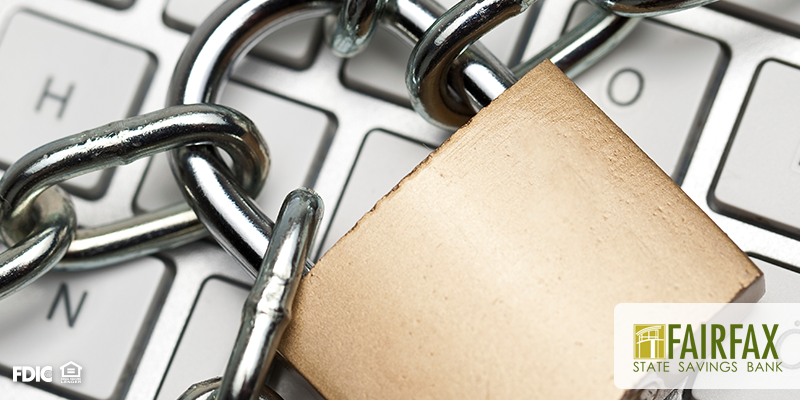Cyber Security 101 - Learning the Basics to Keep Yourself Protected
Posted on | Categories: Cyber Security, Financial Education

Welcome to Cyber Security 101. Grab your pen and paper, it’s time to take some notes about cyber security! While there won’t be a test at the end, there are real-world consequences to disregarding your online security. You wouldn’t want your personal information in the hands of the wrong person.
With so much to think about, you’re probably wondering where you’re supposed to start. Luckily for you, Fairfax State Savings Bank is here to school you in all things cyber security.
Careful Clicking – Between social media, websites and emails, we’re clicking on things all the time. Sometimes these links can be associated with what’s called “phishing attacks.” This is a tactic used to gather your personal data, like passwords and credit card numbers. Most of the time this type of attack occurs within an email. That’s why it’s critical to verify email addresses from trusted entities you know. Never open documents from these unusual email senders.
Password Protection – Creating complex passwords may seem like a no-brainer but about 35 percent of users have weak passwords and about 65 percent of passwords could be cracked. The goal should be to make it something that’s unrelated to you, so not using your birthday, your dog’s name, etc. We suggest using a password generator, or even making your password a sentence.
We understand you log into numerous accounts daily, and you can’t possibly remember all of these unique passwords. Even though your password list could be three feet long, you should never write them on a sticky note and perch them on your computer screen. Check out password management apps to help you keep all of your passwords in order.
Savvy Shopping
Online shopping continues to grow and is more enticing with offers like free shipping, online exclusive products and sales. With such a shift in purchasing habits, our security habits should also be changing. You should only be shopping on secure sites, which can be identified by the “https” at the start of the web address. If there’s no “s”, the site is not encrypted and your information may not be secure.
Another way to protect yourself is to never give more information than required. If they don’t ask for your phone number or address, do not provide it. This information could fall into the wrong hands. Always be sure to read their privacy policy so you know where your information is going and how it’s being used.
Staying Up to Date
If you don’t already, now is the perfect time to get an antivirus or antimalware software program for your internet accessible devices. These programs work to protect your devices and help you stay ahead of any attempts to break security on your computer.
For those who have a security program in place, make sure you’re updating the software regularly. Software companies are constantly working to fight potential security risks, so whenever there’s an update available take the time to download it.
We hope you took some great notes and are ready to tackle all things cyber security. By taking these few steps you can help protect yourself from a world of trouble and inconvenience. If you have any more questions about cyber security, contact us today. We’d be happy to answer your questions. Class dismissed!
